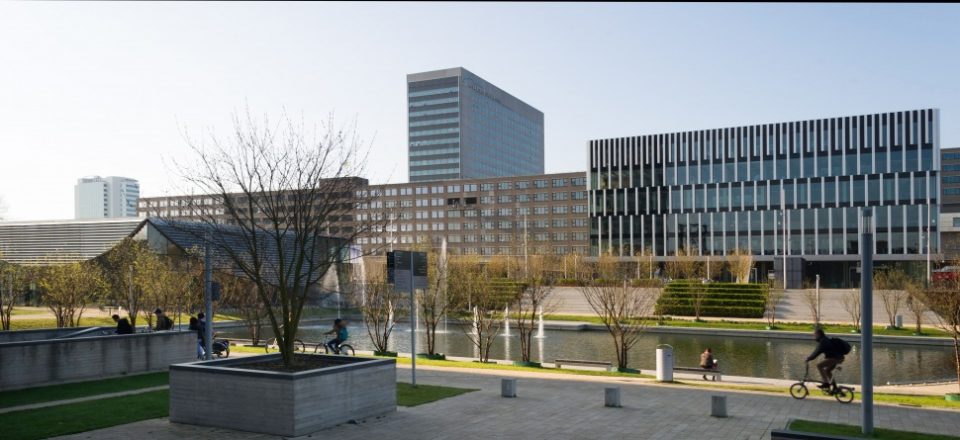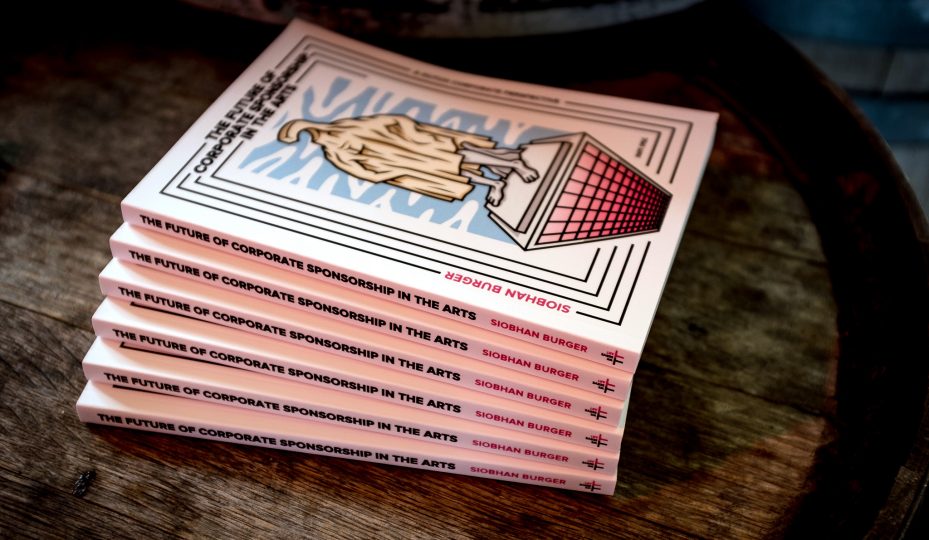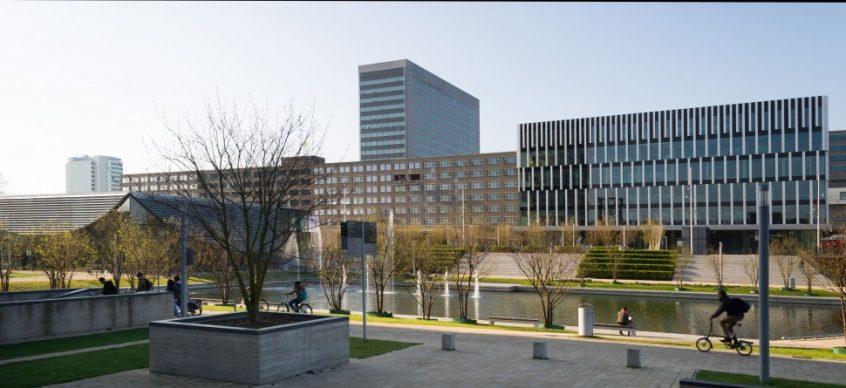This Monday Siobhan Burger had her first experience as a guest lecturer at the Erasmus School of History, Culture and Communication at the Erasmus University Rotterdam. She was invited by professor Niels van Poecke, M.A., to elaborate on the rise of Cultural Policy in the United States in comparison with the Netherlands. She wrote a small blog on her experience!

It is Monday morning. I wake up a little nervous because today I am making my first appearance as a guest lecturer! There are extensively thoughts about what I am going to talk about. Still, I am refreshing my theoretical knowledge during breakfast. I rush to the office for our Monday morning meeting. A very important one this week because Faye has been out of the office for some days. We have a lot to discuss regarding our ongoing projects. After an hour I conquer the rain to the university for a brief lunch with Niels van Poecke. Before I close the door Faye shouts: “Don’t forget to take a picture for your blog!”
Niels and I met when he was my professor in the first year at my BA Cultural Studies. I might already have been a little know-it-all back then. But I was passionate about his classes, so we got along easily. I even was his student assistant for a little while, transcribing interviews on folk music. He connected me with my first job in the cultural field. Later on, we stayed in touch after my BA graduation, throughout my MA at NYU and when Faye and I founded Arttenders.
His lecture series ‘Introductie Kunst- en Cultuurbeleid’ is covering the rise of cultural policy in the Netherlands from as early as 1600. Things have changed significantly since then, with a lot of different views on government involvement in the arts. Especially with the current emphasis on cultural entrepreneurship in the arts and a growing interest in American models, Niels asked me to dig up some of my research an talk about the socio-economic developments from the constitution of the United States to the rise of the digital age and a changing role of marketing and its influence in cultural policy and funding of the arts.

After a 45 minute monologue from my side, the students and I ended up in a lively conversation. It was about the influence of different types of funding on the autonomy of the arts.
Is it true that this is more compromised by collaborating with companies and less when the government is funding the arts? Or do both have an influence on the matter? And does it depend on the project or institution which is more preferable? Should a cultural organization even want to apply for government funding if the requirements for a grant cause it to drift away from its original mission? And how do you find financial partners as a cultural organization in a rural area? They will all be working on their own cultural advise to stimulate culture in outer boroughs of Rotterdam in collaboration with the RRKC (the Cultural Council of Rotterdam), so I am curious what they will end up with!
And of course while writing this I realize: I had a lot of fun, but in the heat of the moment I forgot to take that one picture Faye reminded me of in the morning!

